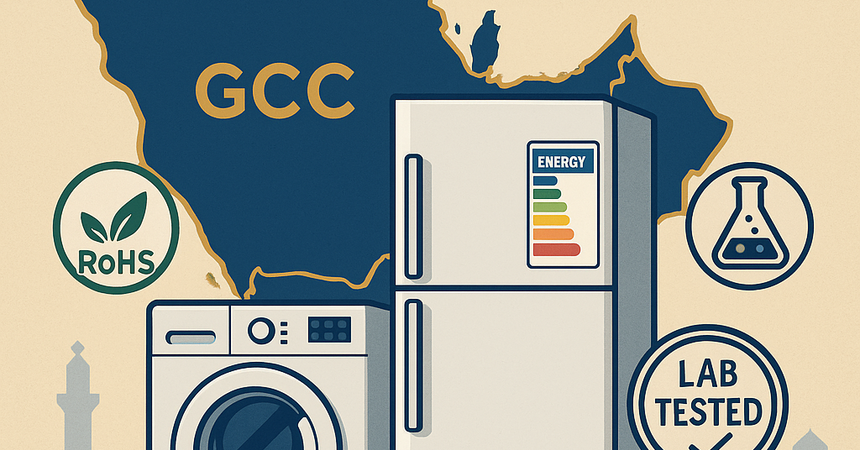The household appliance market in the Gulf Cooperation Council (GCC) countries is rapidly growing and offers significant opportunities for manufacturers and exporters. However, successful market entry requires correct and timely product certification. Local standards, safety requirements, energy efficiency, and environmental considerations play a crucial role in the certification process. WorldWideBridge offers expert support to minimize risks and accelerate your appliances’ market launch in the GCC.
Key Features of Household Appliance Certification in GCC
1. Mandatory Compliance with Safety Standards
All appliances must meet strict safety norms based on international standards (IEC, ISO) and local requirements. This includes electrical safety, overheating protection, fire safety, and mechanical durability.
2. Energy Efficiency and Labeling
GCC countries have mandatory energy efficiency requirements. For example, Saudi Arabia uses the SASO Energy Efficiency Label to inform consumers about energy consumption classes. Certification requires testing and confirmation of energy performance.
3. Environmental Requirements and Restriction of Hazardous Substances
Manufacturers must comply with RoHS and recycling regulations. This reduces environmental impact and aligns with the region’s sustainable development policies.
4. Local Testing and Laboratory Accreditation
In some cases, testing in accredited GCC laboratories is mandatory. This ensures high-quality verification and compliance with local regulations.
5. Documentation and Product Labeling Requirements
All documentation — technical manuals, certificates, instructions — must be in English and/or Arabic. Product labeling must meet GCC standards, including model, manufacturer, technical specs, and certification marks.
How WorldWideBridge Helps You Certify Household Appliances
- • Auditing documentation and preparing a complete certification package
- • Selecting accredited labs and organizing testing
- • Consulting on labeling and translation requirements
- • Supporting interactions with GCC regulatory bodies
- • Ensuring timeline and quality control throughout the certification process
